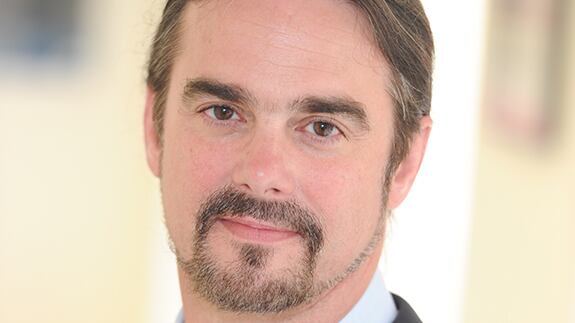John Draper, is a man on a mission—to decrease suicides. Draper, 58, who heads the National Suicide Prevention Lifeline in New York, is in Portland this week to help the media and learn how to communicate more effectively about suicide.
The suicides of two celebrities earlier this year—the food ambassador Anthony Bourdain and the designer Kate Spade—reminded Americans of a persistent, deadly public health issue.
In Oregon, more than two people kill themselves each day, yielding an annual total the exceeds the number of deaths from drugs overdoses (513 in 2016) and is more than five times the total of Oregon homicides (129). Our suicide rate is well above the national average and about twice the rate in states such as New York and New Jersey that have stricter gun control laws.
Draper, who is leading a media training Thursday morning in conjunction with the local suicide-prevention non-profit Lines for Life spoke to WW in a phone interview. (The interview has been edited for brevity and clarity.)
What does the media get wrong about suicides? If a celebrity kills himself or herself, that's newsworthy. But there is a tendency to focus too much on the prevalence of suicide and on the specific and methods people use to commit suicide. There's not enough focusing enough on prevention.
How should suicides be reported? Usually the cause of death is not as significant as celebrating the person's life. If it happens in some sudden way, it's okay to say they took their own life. When Anthony Bourdain's case, CNN, where he worked, wrote a headline that just said "Anthony Bourdain Dead at 61." They went eight paragraphs in before they said he took his life.
Why is reporting the method of suicide a problem? Some people who read or watch stories about suicide are vulnerable. When they read an article that relates to their experience, it could pivot them in the wrong direction. After Robin Williams committed suicide, for instance there was a big increase in the number of suicides—and most of them were by hanging, which is how he killed himself. Including the method is like including directions on how to kill yourself.
What can average Oregonians do to address the high rate of suicide here? First, it's important to note the degree to which suicides are not happening. For every person who takes her life, 280 people think about suicide but don't kill themselves. The overwhelming number of people get through it. We point people to the five steps everyone can take to help and are reminding people that hotlines are effective, as is going to see doctors.
Oregon has a high rate of suicide (16th in the nation) and widespread gun ownership. What is the relationship between suicide and the availability of guns? What we know when you make it harder for people to kill themselves, that drastically reduces the suicide rates. In China, when they put the poison farmer used to kill themselves in lock boxes that reduced the rate. When they put barriers on bridges, that's effective too. It's the same with firearms, you can reduce the suicide rate with gun locks, storage safes and other mechanisms.
In Portland, city officials erected barricades to stop people from jumping off the Vista Bridge. Didn't that just shift people to other ways of killing themselves? There is very little evidence that when you make it harder for people to kill themselves, they find another way. Nobody wants to die. They want to their pain to end. Killing yourself is a very, very hard decision. Making it harder can shift them away from suicidal feelings.
For help: If you, or someone you know, are thinking about harming yourself, call Portland-based Lines For Life at 800-273-8255 or Text 273TALK to 839863. For more information about how to help those considering suicide, go to https://www.bethe1to.com/.

